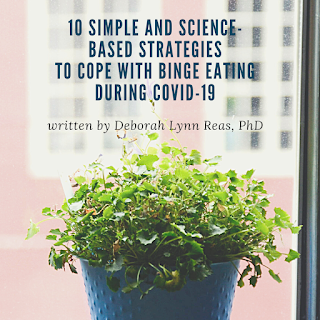Open Up to Hope - Hopewell invites you to share your stories of recovery
By Nerys Parry
When the eating disorder came for my daughter, it took more than her health—it took her voice.
It began by eliminating her access to any story but her own
illness. This ensured there was no room in her head for anything but the disease
itself.
First, it refused to let her listen to any story that might be
conceived as being vaguely ‘triggering’. She stopped reading fiction, in case
there was a suicide scene, and could no longer watch movies or the few TV shows
she’d endured before for fear of seeing self-harm, restriction or simply
unbearable human pain. We had to turn off radio programs if their stories
turned to anything challenging, and an accidental read of a scary headline was
enough to send my poor daughter into a downward spiral. Her brain could no
longer handle empathy—it hurt too much.
But cutting her off from other people’s stories wasn’t enough.
The disease then had to go after her own story, or what was left of it. She’d
been a remarkably talented poet and writer before she got sick, but once she was
admitted to hospital, she stopped writing altogether. She refused to even scratch
out so much as a journal page. She’d also loved drawing and experimenting with
artistic ideas. But art for art’s sake became an indulgence the disease
refused; if she did anything, it had to be something useful to someone else,
but nothing personal—and certainly nothing fun.
Then, for it’s final coup d’état, the disease went after the
only storytelling tool my daughter had left—her voice. As she got sicker, her
voice grew quieter, shrinking to a whisper. There were times it disappeared
altogether and she could find no words to express what was happening inside her.
All she could do to express her pain was scream—silently.
Refusing stories—those of others and her own—was just another
form of restriction, of course. Another way the disease could isolate her from
those she loved and everyone else. Because stories are the most powerful tools
we humans have for coming together and healing—and that’s the last thing the
disease wanted.
Telling our stories
is not an end in itself, but an attempt to release ourselves from them, to
evolve and grow beyond them. We tell our stories to transform ourselves;
to learn about our history and tell our experiences to transcend them; to use
our stories to make a difference in our world; to broaden our perspective to
see further than normal; to act beyond a story that may have
imprisoned or enslaved us; to live more of our spiritual and earthly
potential.
Of course, a writer would
be invested in storytelling—it’s how she earns her living—but you don’t have to
take just her word for it. Leo Widrich’s article, “The
Science of Storytelling: Why Telling a Story is the Most Powerful Way to
Activate Our Brains”, provides
scientific proof that storytelling not only helps people remember facts better,
it also plants new ideas in different areas of the brain in a way that no
PowerPoint presentation ever can. Basically, telling a fact only activates the
language processing portion of the brain, but stories, with their metaphoric
and sensory details, light up many different areas of the brain, parts that
can’t tell the difference between something imagined and something real, so
it’s like we’re actually living the story. So essentially, when we tell our
stories to someone else, we don’t just pass on an idea, we pass on an experience. And that can be incredibly
powerful. No question about it: sharing our stories is powerful stuff—no wonder
the disease didn’t want my daughter to have any of it.
And no wonder the dedicated team at Hopewell wants more of it.
Hopewell’s re-launching its blog this month and asking sufferers
and their loved ones to chime in with their stories. I’ll be posting on a monthly
basis, sharing some of the lessons I’ve collected on the journey with my
daughter, and hope that others will join in when they can. We want to make this
blog a space to share and, even better, to transform.
As for my daughter, story is slowly making a comeback in her
life. It began with her becoming just a little more immune to triggering news
reports and conversational anecdotes. Then her voice grew louder and she started
to take active charge of her treatment, fighting for what she felt was right in
a voice that was audible and confident. She conceded to watch a few movies, at
least every now and then, and even started reading fiction again. Then, only a
few months ago, she opened a beautiful blue leather journal her CYC (child and
youth care worker) had given her before she’d left CHEO, and began to journal. This
month, she started writing poetry again, expressing in art what can’t be transcribed
in a hospital report.
Who knows? Maybe she’ll find the courage to one day post her
work here on the Hopewell blog. I certainly hope so.
Because once we decide to own our stories and share them, we
open ourselves to the world, to the possibility of growth and change.
Best of all, we open ourselves to hope.
Want to ‘open up to Hopewell’? Contact Lindsey MacIsaac, Program Coordinator, at programcoordinator@hopewell.ca. We look forward to hearing from
you.



Comments
Post a Comment